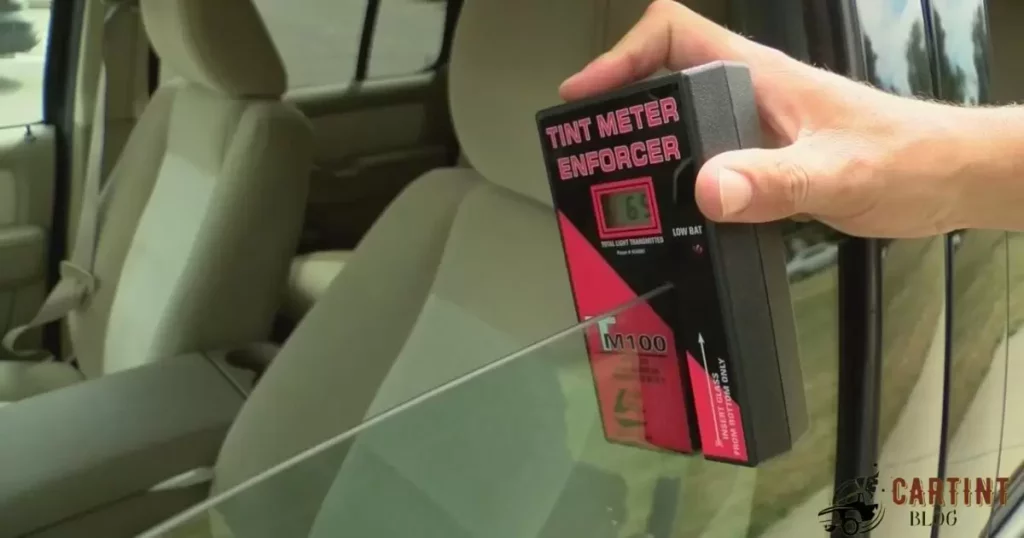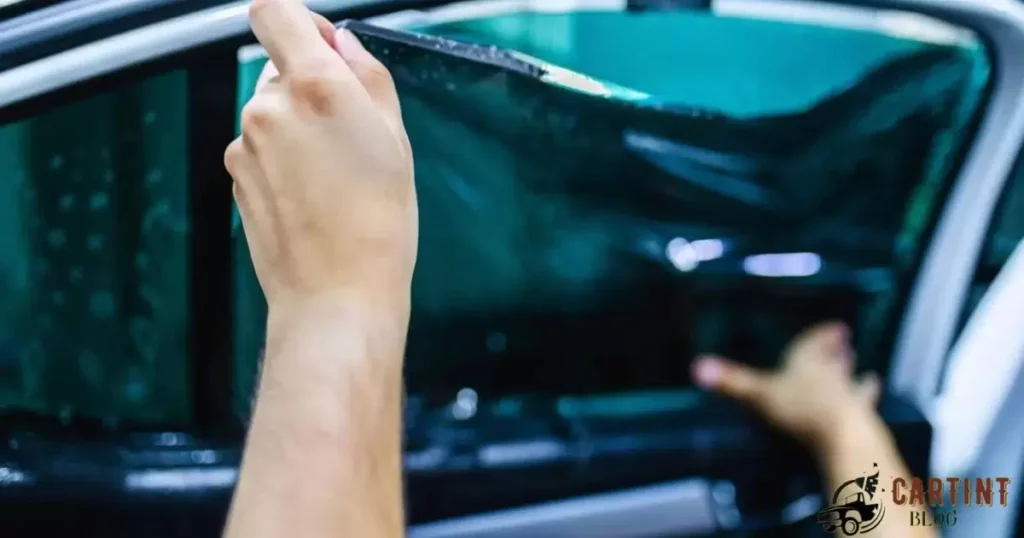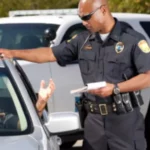It pertains to the practice of selling vehicles equipped with window tint that violates legal regulations. Illegal tint levels are typically those that exceed the permissible limits set by local laws. It raises concerns about compliance, safety, and potential legal consequences.
Can a dealership sell a car with illegal tint? The answer to this query lies at the intersection of automotive regulations and consumer awareness. As unsuspecting buyers navigate the car market, understanding the legality of window tint becomes pivotal. This inquiry prompts a closer look at dealership practices and the responsibilities they bear when it comes to the tinting of vehicles they sell.
Beyond the legal implications, the presence of illegal tint on a car raises issues related to transparency, customer education, and ethical business practices. Buyers may find themselves unknowingly purchasing a vehicle with tinted windows that could lead to fines or require expensive modifications for compliance. This highlights the importance of both consumer awareness and dealership integrity in the automotive marketplace.
Car Dealer Responsibilities
- Car dealers must ensure that all vehicles meet legal requirements, including tint regulations.
- They are responsible for checking and verifying the legality of window tints on cars before selling them.
- Selling a car with illegal tint can lead to legal consequences for the dealership.
- Dealerships need to communicate clearly with customers about tint regulations and potential modifications.
- It is crucial for car dealers to prioritize transparency and adhere to the law to avoid legal issues and maintain a trustworthy business reputation.
Proving Liability is Difficult
Proving liability in cases involving illegal tint on cars can be challenging. Dealerships may face difficulties when questioned about selling cars with illegal tint. The burden of proof often rests on the buyer to demonstrate that the dealership knowingly sold a vehicle with tint that violates regulations.
In such situations, customers should gather evidence, such as documentation or statements, to support their claim. It is essential for buyers to be proactive in addressing the issue and seeking a resolution, as proving liability can be a complex process in cases involving illegal tint on cars sold by dealerships.
Legal Aspects of Tinted Windows
Tinted windows are subject to legal regulations, and it’s crucial to understand the legal aspects surrounding them. When buying a car from a dealership, it’s essential to ensure that the window tint complies with local laws.
Selling a car with illegal tint may lead to legal consequences for both the dealership and the buyer, emphasizing the importance of checking and addressing the tint’s compliance during the purchasing process.Before finalizing a car purchase, it’s advisable to verify the legality of the window tint to avoid potential issues.
Dealerships should provide transparent information about the tint’s adherence to regulations, and buyers must actively inquire to ensure compliance. By proactively addressing the legal aspects of tinted windows, both parties contribute to a smooth and lawful transaction.
Why are tinted windows illegal?
Tinted windows are illegal in some places because they can reduce visibility for drivers, posing safety concerns. Law enforcement needs to see inside vehicles to ensure compliance with traffic rules and identify potential threats. Illegal tint on car windows can lead to fines or other penalties.
When it comes to car dealerships, selling a car with illegal tint is a legal issue. Dealerships should ensure that the window tint on the cars they sell complies with local regulations.
Failure to do so can result in legal consequences for the dealership, affecting their reputation and potentially leading to financial penalties. It is essential for both drivers and dealerships to be aware of and adhere to tinting laws to ensure road safety and legal compliance.
What are laws about tinting your car windows?

Car window tinting laws vary by location. In many places, there are specific regulations regarding the darkness of tint allowed on different windows of a vehicle. It’s essential for car owners to be aware of these regulations to avoid legal issues.
When buying a car from a dealership, it’s crucial to ensure that the window tint complies with local laws. Dealerships should not sell cars with illegal tint, but it’s the responsibility of both the buyer and seller to verify compliance. Checking the tint legality before purchase can save both parties from potential legal complications down the road.
Below is a simple table summarizing the information about car window tinting laws and the dealership’s responsibility in avoiding illegal tint:
| Aspect | Details |
| Car Window Tinting Laws | Car window tinting laws vary by location, regulating the darkness of tint allowed on different windows of a vehicle. |
| Awareness of these regulations is crucial for car owners to prevent legal issues related to improper tinting. | |
| Dealership’s Role | Dealerships must ensure that the window tint on cars complies with local laws when selling to customers. |
| Both the buyer and seller share the responsibility of verifying tint legality to avoid potential legal complications. | |
| Checking tint legality before purchase can save both parties from legal issues and ensure compliance with regulations. |
This table provides a concise overview of the two aspects: car window tinting laws and the dealership’s responsibility in avoiding illegal tint.
Why is window tint illegal in NC?
Window tint is illegal in North Carolina beyond a certain darkness level to ensure driver visibility and safety. The state has set specific regulations on how much light should pass through car windows to maintain road safety standards.
If a dealership sells a car with illegal tint, it can lead to legal consequences for both the dealership and the car owner. It is essential to comply with North Carolina’s tinting laws to avoid penalties and ensure road safety for everyone.Car dealerships in North Carolina must adhere to the state’s regulations regarding window tint to sell vehicles legally.
If a dealership sells a car with tint that exceeds the allowed darkness level, it can result in legal issues for both the dealership and the car buyer. Following these regulations is crucial to prevent legal complications and ensure that vehicles on the road comply with the state’s safety standards.
Legal Limits
Buying a car with illegal tint can lead to legal consequences. Dealerships must adhere to specific tinting regulations to ensure compliance with the law. If a dealership sells a car with tint that exceeds legal limits, both the buyer and the dealership could face fines or penalties.
It’s crucial for buyers to be aware of tinting laws in their area before purchasing a vehicle. If the dealership fails to disclose illegal tint, the buyer may have legal recourse to address the issue. Checking and understanding local regulations can help prevent legal complications and ensure a smooth car-buying experience.
Police Cars and Tinted Windows
Buying a car with tinted windows from a dealership might seem harmless, but it’s essential to check if the tint complies with local regulations, especially regarding the 35 Tint Legal In Pa. Police often enforce window tint laws, and getting caught with illegal tint can lead to fines or even vehicle impoundment.
To avoid potential issues, buyers should inquire about the window tint’s legality before making a purchase.Dealerships typically strive to follow the law, but mistakes can happen. It’s advisable for buyers to confirm that the car’s window tint meets legal requirements.
Taking this precaution ensures a smooth and trouble-free ownership experience, preventing any unwanted encounters with law enforcement due to illegal tinted windows.
Why do police cars get to have illegally tinted windows?
Police cars often have tinted windows for safety reasons, allowing officers to maintain a level of privacy and protection while on duty. These tinted windows can help shield them from potential threats and maintain focus during sensitive situations.
When it comes to dealerships, selling a car with illegal tint is generally not permitted. Car dealers must adhere to state regulations regarding window tinting to ensure compliance with the law.
Illegal tint on a car sold by a dealership may lead to legal consequences, fines, or the requirement to remove the tint before the sale is finalized. It’s crucial for both law enforcement and dealerships to follow regulations to uphold safety standards and legal requirements.
Why can marked police cars have their windows tinted darker than legal?
Marked police cars can have darker tinted windows than legally allowed for safety reasons. This exemption helps officers maintain visibility during covert operations and ensures their safety on duty. It allows them to carry out their responsibilities effectively without compromising their security.
Dealerships cannot sell cars with illegal window tint. The law mandates that vehicles sold to the public must adhere to tinting regulations. So, while police cars have a justified exception, dealerships must comply with the legal standards to ensure transparency and the safety of all drivers on the road.
Buyer’s Guide to Tinted Windows

Thinking about tinted windows? Here’s your buyer’s guide. When purchasing a car, ensure the window tint complies with local regulations. Illegal tint can lead to fines or even a failed inspection.
Concerned about dealerships selling cars with illegal tint? Check the tint during the inspection. Dealerships should comply with tinting laws, but it’s wise to double-check for peace of mind. Always prioritize legal and safe choices for a hassle-free ride.
Buyer Beware, What You Should Know
When purchasing a car, be vigilant, as some dealerships might sell vehicles with illegal tint. Check the windows for tint compliance to avoid potential legal issues. Research local regulations on window tinting to ensure you make an informed decision.
Illegal tint on a car can lead to fines and legal troubles for the buyer. Always ask the dealership about the legality of the tint and request documentation. Stay informed to protect yourself from any unforeseen consequences when buying a vehicle.
Ask for Details
When buying a car, it’s crucial to inquire about the details, especially regarding the tint on the windows. Dealerships may sell cars with illegal tint, so it’s essential to ask for specifics. Confirming the legality of the tint ensures you won’t face legal issues or unexpected expenses after the purchase.
Avoiding passive voice, actively inquire about the tint’s legality before finalizing the deal. A straightforward question about the tint’s compliance with local regulations can save you from potential troubles later. Don’t hesitate to seek clarification and ensure the dealership provides transparent information about the car’s features.
Inspection
Car buyers often wonder about the legality of window tint when purchasing a vehicle from a dealership. In many places, dealerships must ensure that the tint on the windows complies with local regulations.
Buyers should inspect the tint during the purchasing process to ensure it meets legal standards, preventing potential issues down the road.Illegal tint on a car sold by a dealership can lead to fines and legal complications for both the buyer and the dealership.
Therefore, it’s crucial for buyers to ask about the legality of the tint and visually inspect the windows before finalizing the purchase. This simple precaution can save buyers from future hassles and ensure a smooth and legal car ownership experience.
Understanding Illegal Tint
Illegal tint on car windows is when the tint darkness exceeds the legal limit set by local regulations. Dealerships must not sell cars with illegal tint as it violates the law and can lead to penalties for both the dealership and the vehicle owner.
The responsibility falls on the dealership to ensure that the tint on the cars they sell complies with the legal standards to avoid legal issues and provide customers with law-abiding vehicles.If a dealership sells a car with illegal tint, it can result in fines and other consequences.
It’s crucial for both dealerships and buyers to be aware of local tinting regulations to prevent legal complications. Always check the tint on a car before purchasing to avoid potential problems related to illegal tint.
Dealership Practices

Car dealerships must adhere to legal tinting regulations when selling vehicles. Illegal tint can lead to fines and legal troubles for both the dealership and the buyer. It is crucial for dealerships to ensure that the tint on cars complies with local laws to avoid potential issues.
Before purchasing a car, buyers should inquire about the tinting status and request documentation proving its legality. Dealerships are responsible for providing accurate information about the tint on the vehicles they sell.
Buyers can protect themselves by being informed and proactive in confirming that the dealership practices align with legal requirements for car tinting.
Dealership Responsibility
Car dealerships must ensure that the tint on vehicles they sell complies with legal regulations. Selling a car with illegal tint can result in legal consequences for the dealership. Therefore, it is the responsibility of the dealership to verify and adhere to tinting laws to avoid potential issues with customers and authorities.
Customers should also be aware of tinting regulations in their area when purchasing a car. Checking the legality of the tint ensures a smooth buying process and helps avoid any complications related to illegal tint after the purchase. Both dealerships and customers play a role in ensuring that cars sold meet legal standards regarding tinted windows.
Do Dealerships Tint Windows
Car dealerships often offer window tinting as an additional service for customers. They may provide various tinting options to enhance privacy and reduce glare while driving.
However, it’s crucial to ensure that the dealership follows local regulations to avoid selling cars with illegal tint, which could lead to potential legal issues for both the dealership and the buyer.
Before purchasing a car with tinted windows from a dealership, it’s advisable to inquire about the tinting process and its compliance with local laws. This proactive approach ensures that the tinting is legal, providing peace of mind for both the buyer and the dealership, and avoiding any complications related to illegal tint in the future.
Types of Tint
There are two main types of car tint: factory tint and aftermarket tint. Factory tint is applied during the manufacturing process, while aftermarket tint is added later. It’s crucial to know the legal limits for tint darkness in your area, as exceeding these limits may result in penalties.
When buying a car from a dealership, ensure the tint complies with local regulations. Some dealerships may sell cars with illegal tint, so it’s wise to check the tint level and ask for documentation. Being aware of the legal requirements helps you avoid potential issues with tint and ensures a smooth car-buying experience.
Factory Tint vs. Aftermarket Tint
Factory Tint
Cars with factory tint come pre-equipped with a layer of tinted glass. Manufacturers install this tint during production, offering a sleek appearance and some level of UV protection. Factory tint generally provides a light to moderate shading, maintaining visibility while reducing glare and heat inside the vehicle.
Aftermarket Tint
In contrast, aftermarket tint involves applying a tint film or coating to the vehicle’s windows after purchase. This allows for greater customization in terms of darkness and type of tint. Aftermarket tint is popular for enhancing privacy, reducing heat, and protecting the interior from harmful UV rays. While it offers flexibility, the quality of aftermarket tint depends on the installation process and the film used.
Here is a detailed table about Factory Tint Vs Aftermarket Tint.
| Aspect | Factory Tint | Aftermarket Tint |
| Installation | Installed during production by the car manufacturer. | Applied post-purchase, involving the use of tint film or coating. |
| Customization | Limited customization options, usually light to moderate tint. | Offers greater customization, allowing for varying darkness and tint types. |
| Appearance | Provides a sleek appearance, integrated into the glass. | Enhances privacy and aesthetics, but the quality depends on the installation and film used. |
| UV Protection | Offers some level of UV protection. | Provides UV protection, reducing the risk of interior damage and fading. |
| Heat Reduction | Reduces glare and heat to a moderate extent. | Effective in reducing heat inside the vehicle, enhancing comfort. |
| Visibility | Maintains visibility while reducing glare. | Impact on visibility depends on the darkness chosen and installation quality. |
| Popularity | Common in many new cars as a standard feature. | Popular for those seeking personalized tinting solutions. |
| Quality Assurance | Quality is consistent and factory-tested. | Quality depends on the skill of the installer and the chosen tint film. |
| Cost | Included in the car’s overall cost. | Cost varies based on the type of film, darkness level, and installation charges. |
| Warranty | Often comes with a factory warranty. | Warranty varies and is typically provided by the aftermarket tint installer or manufacturer. |
Transparency in Sales
Car dealerships must adhere to strict legal guidelines when it comes to tinted windows. Selling a car with illegal tint is against the law in many places, as it poses safety concerns and can lead to legal consequences for both the dealership and the buyer.
Transparency in sales is crucial to ensure that customers are fully informed about the legality of tinted windows. Dealerships should openly communicate information about the tint level on each vehicle, allowing buyers to make informed decisions and avoid potential legal issues. Providing clear information builds trust and establishes a positive relationship between the dealership and the customer.
Is Chrome Tint Illegal
In many places, chrome tint is considered illegal for car windows. Regulations typically limit the darkness of window tint to ensure visibility and safety on the road. Violating these rules can result in fines or even the need to remove the tint.
FAQs
Is it legal for a dealership to sell a car with chrome tint?
Dealerships can sell cars with chrome tint, but it’s crucial for buyers to verify if the tint complies with local regulations to avoid potential legal consequences.
What should I do if I discover illegal tint on a car I bought from a dealership?
If you find illegal tint on your newly purchased car, address the issue with the dealership promptly. They may offer solutions such as tint removal or replacement to ensure compliance with the law.
Can I trust that a dealership checks the legality of window tint before selling a car?
While some dealerships diligently follow tint regulations, it’s advisable for buyers to independently confirm tint legality to prevent any future legal complications.
What penalties could I face if I unknowingly buy a car with illegal tint?
Buying a car with illegal tint could result in fines or require tint removal to comply with local laws, highlighting the importance of verifying tint legality before purchase.
Are there specific regulations regarding chrome tint that dealerships must adhere to?
Dealerships should follow local laws governing window tint darkness, but it’s wise for buyers to double-check and ensure compliance with regulations specific to their region.
Conclusion
Discovering illegal tint on a car purchased from a dealership can lead to serious consequences. It’s vital for buyers to be aware of local tinting regulations and inspect the vehicle thoroughly before making a purchase. Legal troubles arising from non-compliant tint can result in fines and the inconvenience of having to remove or replace the tint to meet legal standards.
Ultimately, the responsibility falls on the buyer to ensure that the car they are purchasing complies with tinting laws. Dealerships should be transparent about the tint on their vehicles, but buyers must actively inquire and verify to avoid potential legal issues down the road. Being informed about tint regulations not only protects buyers from legal consequences but also contributes to safer and more compliant driving.



